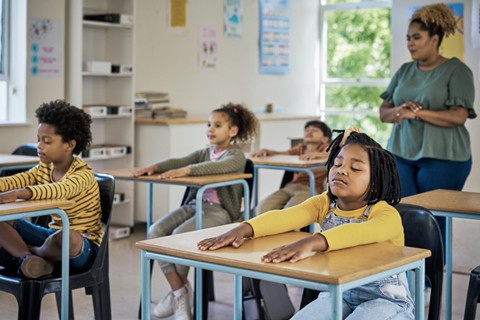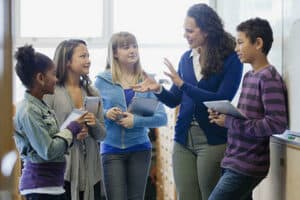Teaching is a demanding profession, and it’s essential that educators prioritize their own well-being and that of their students. One of the most effective ways to do this is through social emotional learning (SEL). SEL helps students develop crucial social and emotional skills that can support their well-being and resiliency in school and beyond. But social emotional learning isn’t just for students; it can also benefit teachers.
Social and Emotional Competencies
Social and emotional learning is about developing competencies like self-awareness, self-management, social awareness, relationship skills, and responsible decision making. These competencies can help students and teachers better manage their emotions, communicate more effectively, build stronger relationships, make responsible decisions, and more. By focusing on these competencies, students and teachers can enhance their well-being and resilience.
Positive Classroom Climate
Social emotional learning can also contribute to a more positive classroom climate. When teachers prioritize SEL, they create a classroom culture that emphasizes empathy, respect, and collaboration. A classroom that prioritizes social and emotional learning is a safe and supportive environment that promotes student engagement and learning. Teachers who prioritize SEL can create a classroom that is both challenging and supportive.
Stress Reduction
Many educators experience stress and burnout. They face competing demands and often work long hours. Social emotional learning can help reduce stress and burnout by providing resources for managing stress and improving well-being. With SEL, educators can develop social and emotional skills that support their well-being. They can also use these skills to develop a healthy work-life balance, manage stress, and avoid burnout.
Academic Success
Social emotional learning can lead to academic success. When students develop social and emotional skills, they are better equipped to navigate challenges both in and out of school. Students who have social and emotional skills can persevere through difficult tasks, work effectively with others, and make good decisions. Teachers who prioritize SEL can better support academic success by cultivating a positive classroom climate, helping students manage stress, and modeling social and emotional skills.
Long-Term Impact
Social emotional learning can have a long-term impact on the well-being and resilience of both students and teachers. By developing social and emotional competencies, students can build resilience and adaptability that will support their well-being long after they leave the classroom. Teachers who prioritize SEL can also develop long-term competencies that will support their well-being and career success.
Social and emotional learning isn’t just for students. It also supports the well-being and resiliency of teachers. By focusing on competencies like self-awareness, self-management, social awareness, relationship skills, and responsible decision making, educators can develop skills that support their well-being and success. A classroom that prioritizes SEL is a positive and supportive environment that promotes learning and development for everyone. By integrating social and emotional learning into their practice, educators can promote well-being, build resilience, and cultivate long-term success for themselves and their students.





